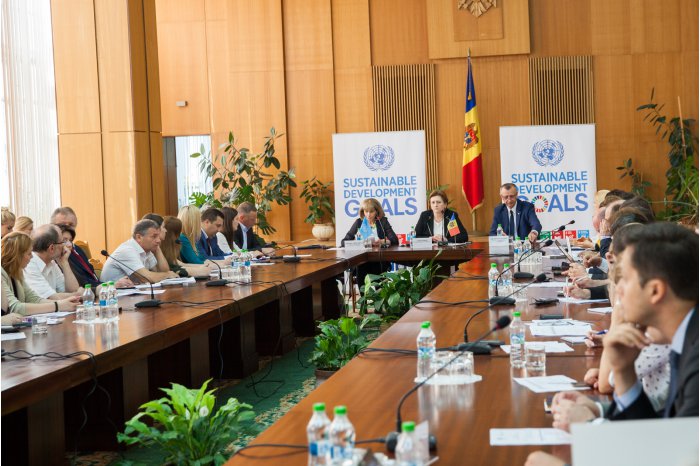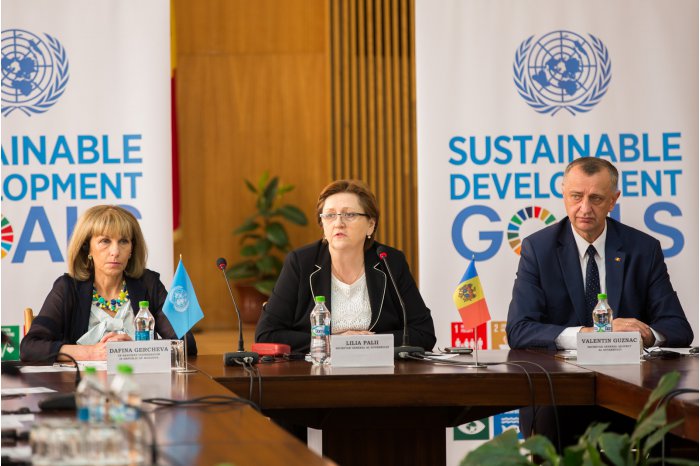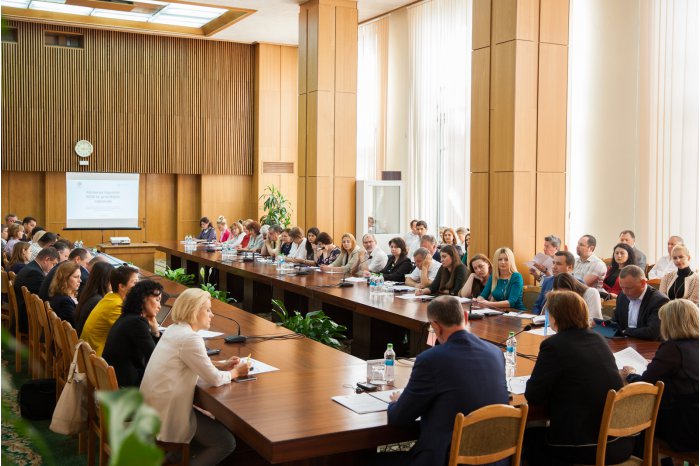Moldovan government starts adapting process of Sustainable Development Agenda 2030 to national context
20:40 | 04.07.2017 Category: Official
Chisinau, 04 July /MOLDPRES/ – The government launched the process of developing the long-term strategic planning framework by 2030, today.
According to the government’s communication and protocol department, the Republic of Moldova assumed 106 targets for a better life by 2030. These goals are the result of the adaptation of the Sustainable Development Agenda 2030, which Moldova has pledged to implement and 192 other UN member states, by adopting the Declaration on the Sustainable Development Summit held in New York in September 2015.
Agenda 2030 aims to accelerate the achievement of the Millennium Development Goals, with the primary goal of eradicating poverty by 2030 and ensuring sustainable development globally. In order to adapt the Agenda to the national context, the Government of Moldova, with the support of the United Nations, held extensive consultations, attended by more than 200 people and analyzed over 60 opinions.
The 2030 Development Agenda is a very complex one and includes 17 Sustainable Development Goals (Global Objectives), which include all key aspects of development: economic, social, environmental, governance and human rights. The success of implementing the 17 Sustainable Development Objectives depends on the reliability of the strategic planning framework.
In this regard, the Secretary General of the Government, Lilia Palii, mentioned that "the global development agenda can become a successful one in Moldova only if at this inception the country will make a correct prioritization of the targets to be achieved, by correlating with the reform agenda and the expectations of society. It is important to look at the results achieved in its implementation, to adjust our priorities and targets at national level, including taking into account the international development goals." Lilia Palii also reiterated gratitude to the United Nations and other development partners for their support in the process of nationalization of ODDs and commitments to support the Government's efforts in developing the new Moldova 2030 Strategic Planning Framework.
At her turn, UN Resident Coordinator and UNDP Permanent Representative in the Republic of Moldova, Dafina Gercheva, said: "Today we will launch another Strategic Partnership Initiative for the future of the Republic of Moldova, which will lay the groundwork for transforming the country into a modern and prosperious state in which no one is left behind. The United Nations System, the Swiss Agency for Development and Cooperation in Moldova and the State Chancellery, in close consultation with all relevant stakeholders and partners, will begin developing the National Development Strategy Moldova 2030. This document will come with a holistic approach and a comprehensive agenda, which will be fully aligned with people’s aspirations, the national and regional priorities and Moldova's global commitments," said Dafina Gercheva, UN Resident Coordinator and UNDP Permanent Representative to Moldova.
The Adaptation Report of Agenda 2030 was prepared by the Expert-Grup Analytical Centre within the project "Nationalization of the Sustainable Development Agenda in the Republic of Moldova", implemented by UNDP, with the support of the United Nations Country Team, including UNFPA, UNICEF, ILO and UN Women.
The Moldova 2030 Strategy is to be drafted by the Government by December 2017, with the support of the United Nations, Moldova, the Swiss Agency for Development and Cooperation in Moldova and other development partners, including the involvement of the public authorities/stakeholders, by organizing a wide consultation process.



